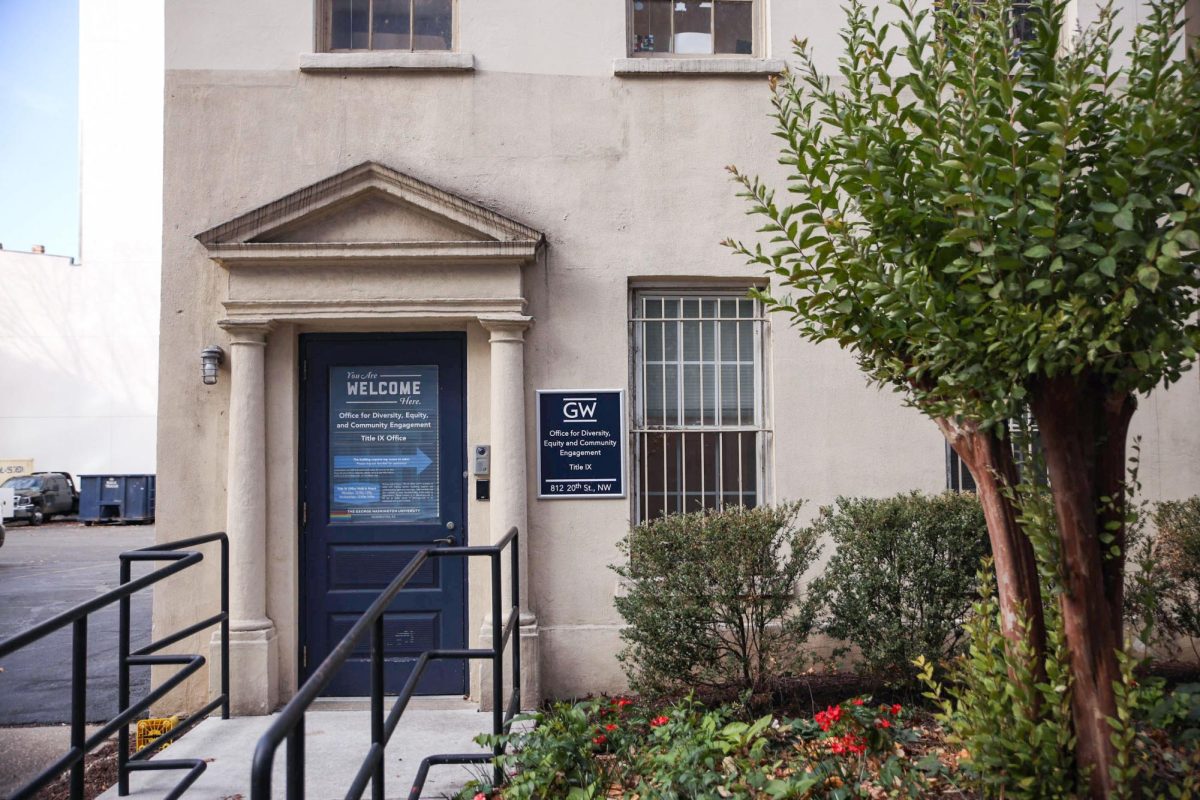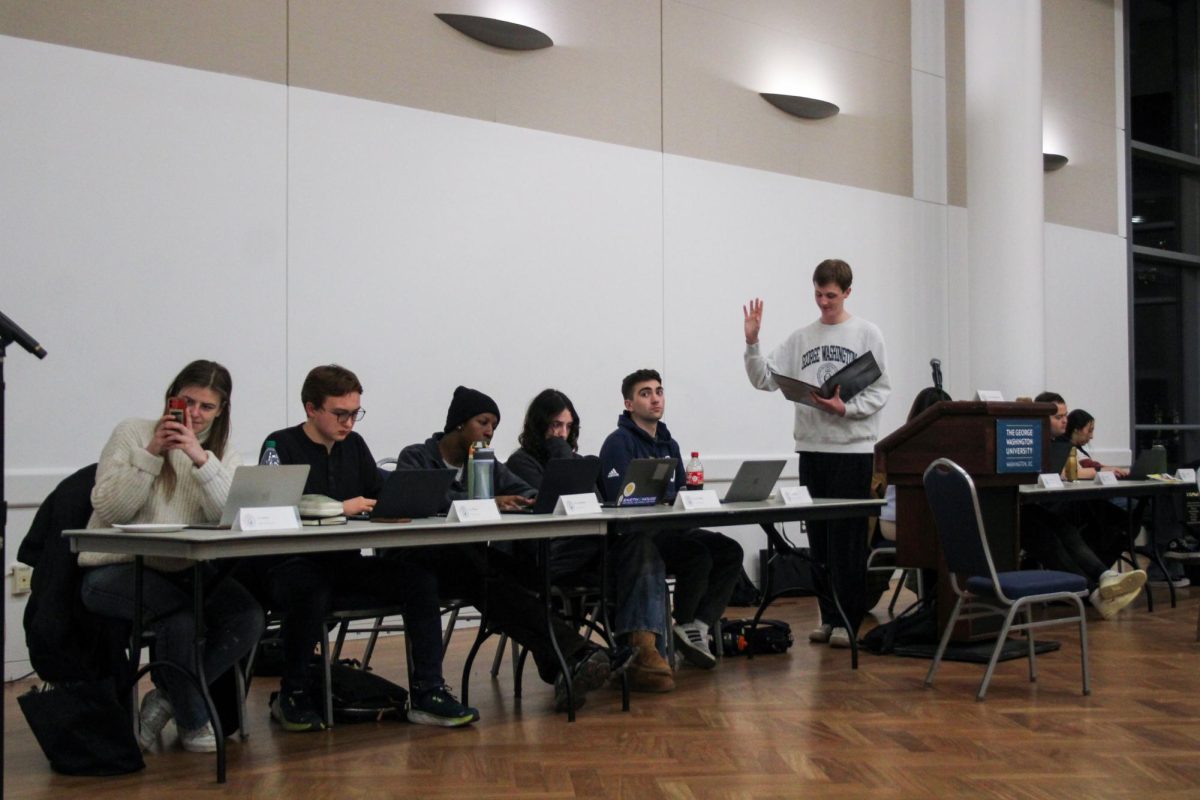As the 2022 Student Association election campaign season is coming to an end, you may be wondering how to cast your ballot for the body’s top spots and senate seats.
This year’s campaign season – the first one held in-person since 2019 – was marked by a record-low number of candidates and sparse campaigning efforts. The SA amended its constitution last spring and this fall, overhauling its election bylaws to change voting methods and to allow candidates to submit petitions online and in person.
Here is everything you need about the election process before ballots open Tuesday.
When is the election?
Students can vote starting at 9 a.m. Tuesday and until 9 p.m. Wednesday.
Who is running?
SA Sen. Dasia Bandy, ESIA-U, and senior Christian Zidouemba are vying for SA president, and SA Sens. Yan Xu, ESIA-U, and Alfredo Granados, CCAS-U, are facing off in the vice presidential race. 21 candidates are running for a share of 20 seats on the SA Senate – about 57 percent of the entire legislative body.
The Joint Elections Commission announced the final list of candidates. The commission had extended 15 senate positions’ registration periods by almost two weeks to allow more students to register to run in light of low registration totals.
[pdf-embedder url=”https://www.gwhatchet.com/wp-content/uploads/2022/03/565766973-verified-candidate-list.pdf” title=”2022 SA VerifiedCandidates”]
Source: Joint Elections Commission
What are the responsibilities of the president and vice president?
The president signs and vetoes legislation that the senate passes. The president is also the student representative on the Board of Trustees, but they have no voting power on the Board itself.
The vice president manages and runs senate meetings and appoints senate staff. The president and vice president – both elected by undergraduate, graduate and degree-seeking students – represent more than 25,000 students. The two top positions also regularly meet with administrators to discuss projects, like introducing U-Pass and expanding SafeRide.
What are the responsibilities of SA senators?
SA senators, popularly elected by their respective schools, include graduate and undergraduate seats for every GW school. The senate currently has 41 seats filled, with one School of Engineering and Applied Science graduate seat remaining vacant.
Senators meet biweekly to discuss and vote on legislation, allocate funds to student organizations and hear from members of the public. Senators can pass pieces of legislation to allocate funding for student organizations, urge officials to take action through a resolution or amend the SA’s bylaws. All senators have to serve on at least one of the five standing committees, like the finance and allocations committee, or the diversity and inclusion assembly while in office.
What referenda will students vote on?
Referenda are proposals from the SA put forth for the student body to vote on. If approved by a majority, they may adjust the SA Constitution, be used to show support for an issue or lobby officials to make a change.
The referendum will ask students whether the constitution should codify how students can approve or reject potential adjustments to the SA fee and require the senate to adopt the budget for the upcoming fiscal year in March.
If students approve the referendum, the constitution will outline a process allowing students to vote on any proposed adjustments to the SA fee – which totals $3 per credit hour – through a referendum. The SA received about $100,000 less this academic year than previous years largely because of a decrease in enrollment amid the COVID-19 pandemic.
How do I vote?
Sign into GW Engage with your GW email Tuesday or Wednesday and click on the ballot at the top of the page.
What has turnout been like over the past few years?
Student participation in SA elections has been declining since 2019 – the highest turnout since 2015 – when about 4,700 students voted, followed by 3,850 students in 2020 and 3,250 students in 2021.
Can I write in a candidate?
Yes, students can write in candidates. In the case that a write-in candidate wins an election, they will need to register as a candidate verified by the JEC, and a second election will take place. In 2019, write-in candidate Justin Diamond nearly won an election against then-presidential candidate and former SA President SJ Matthews after a last minute write-in campaign.
Who oversees the election?
The JEC oversees and runs SA elections. It is governed by a charter outlining all the rules and regulations for campaigning and elections, like the length of the campaign period and where posters can be placed on campus.
How are votes counted for the contested races?
Votes will be counted using the ranked-choice system for the presidential and vice presidential races and senate races for single-seat constituencies. Races for senate constituencies with multiple seats will be decided by a plurality vote, where students can vote for one candidate per open seat.
What is ranked-choice voting?
The JEC will use a ranked-choice voting system again this year for the presidential and vice presidential races. This will be the third year that students will use the method to elect the top two positions. Ranked-choice voting aims to select candidates that the most students view as best fit for the position instead of the single-most favorite by ranking the choices.
When voting, students will rank each of the candidates in order of preference. The candidate with the fewest first-choice votes will be eliminated. The votes from the students who picked the eliminated candidate as their top choice will then count toward their second-choice candidate. This process will continue until one candidate remains. Since there are only two candidates declared for president and vice president, the ranked-choice method is not expected to affect the final results, unless there is a write-in candidate.
When will results be announced?
The JEC will announce the preliminary election results Thursday at 5 p.m. Results will be available on the JEC’s website.








